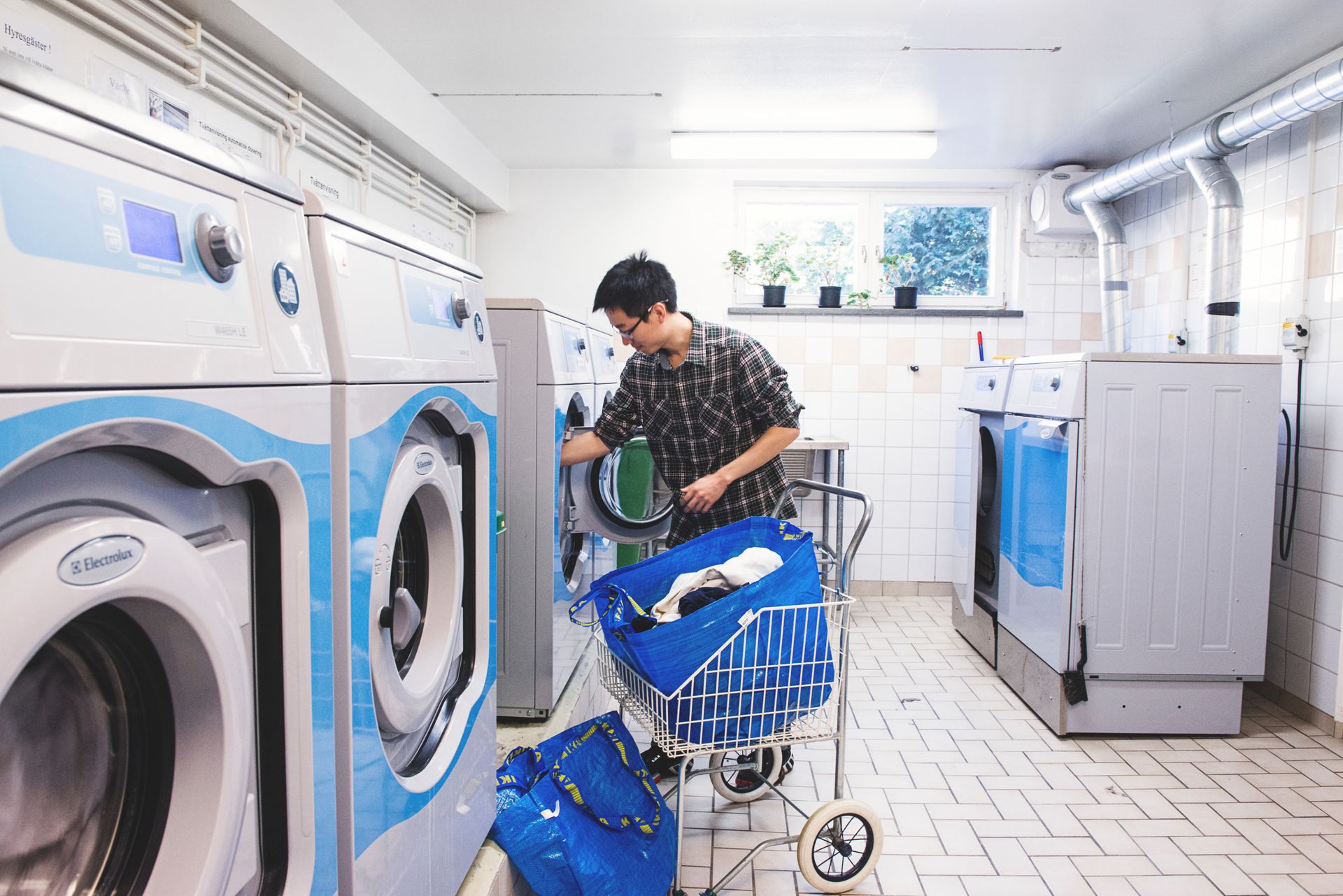
Written by Tina
10 Feb 2020
You did it: You applied, got accepted, booked your flight, traveled all the way to Sweden and now you are sitting in your bed in your new room with your laptop and a head full of questions.
Well, question no further! I was exactly where you were a couple of months ago. Just starting my bachelor’s degree in a country I had never been to before and trying to convert everything from SEK into Euro.
Since those exciting and sometimes stressful first few days are now over and I am settled in beautiful Sweden, it is my pleasure to share some advice with you. Additionally, I also chatted with some friends who already successfully survived their bachelor times (only academically) and who provided some insider tips.
Now it is my pleasure to give some of my wisdom to everyone who is just starting or thinking about applying for a bachelor’s degree in Sweden. I will be reflecting on some of my own experiences and give you insight into being completely new to University.
So I broke the 5 most important parts down for you, quick and simple to hopefully take some weight off your shoulders!

1. Being the newbie
Do you remember your very first day at elementary school? How excited you were? Anxious, because you didn’t know anyone. Excited, because finally, you were a real grown-up kid. Scared, because now you have to spend so much time away from your family.
Well, starting university is really not that different from starting elementary school (of course, now you can tie your shoes a lot faster). The best thing you can do is take it one step at a time, don’t panic and try to think ahead. First time walking to university? Figure it out on Google Maps and already walk the route one day beforehand. Taking the bus? Find out what bus to take and how to use the ticket before you are already at the bus stop.
Don’t be afraid of asking people, basically, everyone speaks English and Swedish people are really helpful. Appreciate the first weeks of being completely alone in a new country- you will experience everything so intensely. Gorgeous blue skies, typical Swedish houses, the smell of delicious coffee, the sounds outside your apartment when you are falling asleep (aka drunk students). Those are precious moments, and appreciating the feeling of a new start is valuable.
By the way, so you can learn from my mistakes: the first day of the introduction week is from 11 AM till 6 PM? Fika might be provided, but bring some snacks. I almost starved during the first day.
And bring chewing gum, that way you will instantly make friends.

2. How To Not Be Alone 101
I already wrote a blog post on how to stay in touch with your friends at home. But making new friends? That might be another question on your mind.
There are some people who find a group of friends within the first few days and stick with them through all of the Degree. But it is not like that for a lot of people, in reality, it is very possible that you might feel a bit lonely in the beginning. And that is not a bad thing!
Just take your time. The single best thing you can do is just be open to every potential conversation. Say “Hej” to everybody that is standing in a queue in front of you, talk to the person next to you in class and do some small talk with the people on your floor. That might be quite challenging if you are more introverted, so here it is a good idea to carry around a book or wear merchandise of a band/ show, as those are great conversation starters and someone might approach you. If you are super outgoing, student pubs and bars are of course your best friend for finding best friends.
Some advice that might come in handy: if you are meeting someone that you click with really well, exchange social media (not phone numbers!).
It is way more casual and you will not lose touch immediately. If you are settled in a bit more, join an association or club- playing basketball or discussing environmental issues with fellow students will allow you to establish a close group of amazing, diverse people in no time.
My very good friend Fatima, who is studying with me, would also like to inform everyone that if you offer someone a Semla, you will instantly make friends.

3. Footnotes, libraries and the world of academia
Sure, you have written essays before, spent the night over books and created PowerPoint presentations with people that made you realize you hate group work.
But now you are in this library, surrounded by very busy looking people who use very important words like “liberal intergovernmental post-structuralism hypothesis”. That can be quite intimidating and procrastination due to a fear of failure is very likely. A great tip I received from my fellow digital ambassador Emma, who already survived a Bachelor program, is: treat your studies like a 9-5 job.
Get into a routine that you try to follow as strictly as possible. There is no one that tells you “get up and go to your lecture!” you have to do it yourself. Sticking to a plan you made for yourself is a good way to hand in all your assignments on time. Make use of all the resources provided by the university: the library will help you find books you need and you can book rooms to study in silence or do group work. Group work with some friends might be a bit less productive but can provide a lot of inspiration and motivation. Every university has helpful workshops on academic writing, that will boost your essay to the next level. And finally, almost everyone wants to see you succeed: asking for help is a good thing! If you know someone that gets straight As and always pays attention during lectures, don’t hesitate to ask them to explain a concept to you.
Scheduling office hours with your professors is one of the most efficient things you can do: they will get to know you, remember your name and face and be able to provide help individually.
At this point, it is just fair to mention that you will most likely pull an all-nighter for that one hand-in assignment you procrastinated for weeks, sleep in and decide to skip your lecture and sit completely hungover in a seminar. Don’t worry- it will be fine. As long as you don’t let it happen too often.

4. Culture shock and cold weather
In this chapter, I can not give you advice from personal experience. But I sat down with my classmate Sam from Brazil, and we talked all about the “culture shock”.
If you are moving to Sweden from Denmark, you will most likely adjust very quickly. The culture is similar, the language somewhat understandable, the cold weather familiar and you are not far from home. But what if you have to spend 15 hours on a plane to get to Sweden and the coldest weather you ever experienced is 30 degrees?
Then it is possible you will feel a bit overwhelmed the first couple of weeks or even months.
Sam told me the best thing you can do is to “not change yourself, but just observe”. You should not be pressured to adapt completely. Just watch, listen and try to figure out what works differently over here. And while the stereotype that Swedes are rather distant and politely quietly is true to some part, that does not mean they will not be very welcoming and helpful when you approach them. Focus on the similarities between your cultures instead of the differences; there might be no Holi festival like there is India, but Midsommar is a really fun occasion as well.
And according to Sam, do NOT forget to bring gloves and an umbrella- that is a real beginner mistake!

5. Adulting
Cooking, cleaning, laundry, running errands, budgeting, time management… You will most likely know how to do at least a few of them. The best two things you can do here is preparing and experiencing trial and error.
If you don’t want to survive off of instant noodles and takeout, it is a good idea to get a head start and learn a few simple recipes while you are still at home. Focus on the basics and experiment with stuff like veggies, rice, and spices. There are of course tons of YouTube channels that will teach you how to prepare delicious meals. You will be a chef cook in no time! Another important skill is, of course, budgeting and time management. You can combine learning those while cooking: while shopping at the local ICA, write down all of your spendings precisely so you can keep an eye on them. When you cook, try meal prepping: When you spend 2 hours in the kitchen on Sunday, you can prepare enough food for the week, put some in the freezer and you will always have a nice meal ready at night or something to take to university with you.
Laundry can be a complicated matter in Sweden: the StudyInSweden ambassadors already talked about this topic in length on our blogs, the Instagram channel and YouTube channel. Check out this video:
Especially if you live with roommates or flatmates, it can be helpful to develop a cleaning plan, so the apartment stays clean and the labor is divided equally.
For international students, the university will provide plenty of helpful information and will help you navigate through adulting life: they will show you the cheapest grocery stores, can provide health care and give workshops on time management and how to deal with stress.

So hopefully now, you have fewer questions floating around in your head and are a bit more prepared for the new chapter of your life. Try to remember that beginner mistakes are completely normal, missing home is common and only eating bread for 3 days will not matter in the long run.
Do not be scared to dive in and explore Sweden, University life and everything it has to offer. Before you will realize, you will be navigating through Swedish life like a local!





